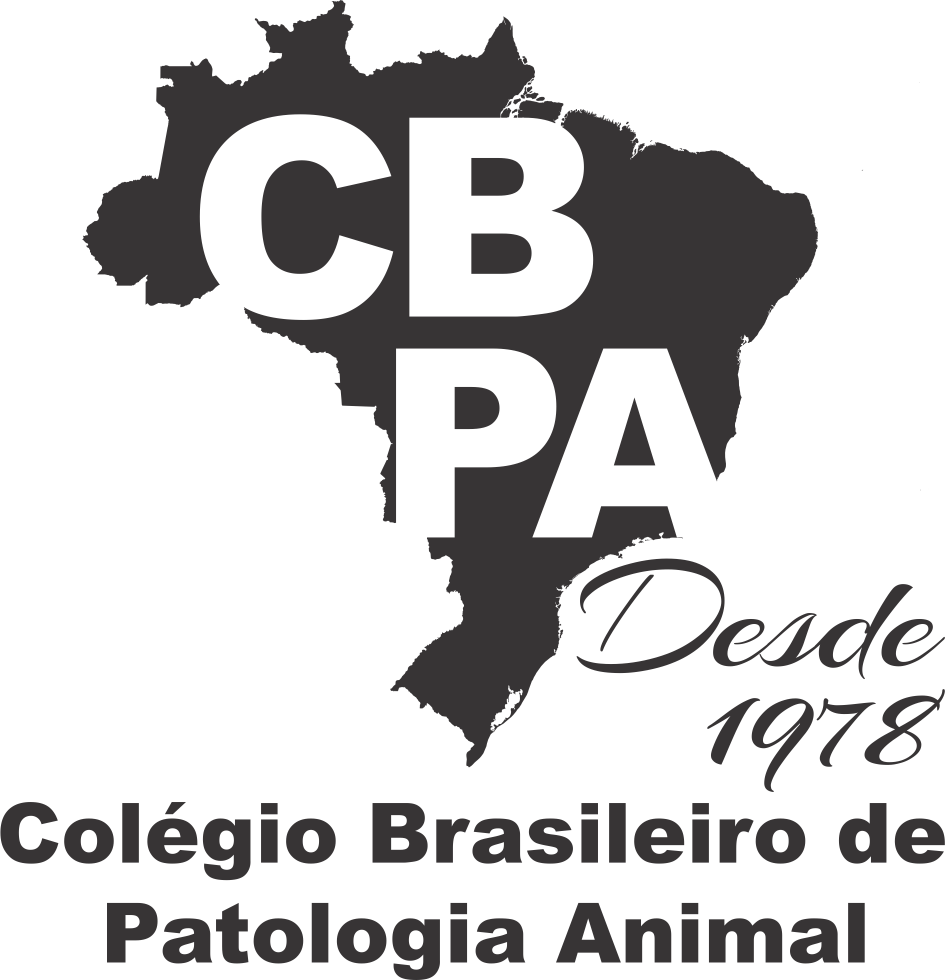Resultado da pesquisa (1)
Termo utilizado na pesquisa Tortelli P.F.
#1 - Intoxicação por Ipomoea asarifolia em bovinos e ovinos na Ilha de Marajó, p.622-626
Abstract in English:
ABSTRACT.- Tortelli P.F., Barbosa J.D., Oliveira C.M.C., Dutra M.D., Cerqueira V.D., Oliveira C.A., Riet-Correa F. & Riet-Correa G. 2008. [Poisoning by Ipomoea asarifolia in cattle and sheep in the Marajó Island, Northern Brazil.] Intoxicação por Ipomoea asarifolia em bovinos e ovinos na Ilha de Marajó. Pesquisa Veterinária Brasileira 28(12):622-626. Central de Diagnóstico Veterinário, Faculdade de Medicina Veterinária, Campus de Castanhal, Universidade Federal do Pará, Rua Maximino Porpino da Silva 1000, Pirapora, Castanhal, PA 68743-080, Brazil. E-mail: griet@ufpa.br
To determine plant poisonings occurring on Marajo Island, state of Pará, northern Brazil, 7 farms were visited. All farms had native pastures with low forage availability severely infected by Ipomoea asarifolia. In 5 farms poisoning in sheep by the plant was reported. The disease occurs mainly during the dry period and lambs are more frequently affected than adult sheep. Sheep with clinical signs were observed in 2 farms. In 4 establishments farmers reported the occurrence of I. asarifolia poisoning in cattle. In one farm affected cattle were observed during two visits, one during the dry season and another at the start of the raining season. Deaths are observed mainly in calves. In both species the poisoning occurs every year with variable morbidity and low mortality. One bovine and one sheep with severe clinical signs were euthanized and post-mortem examination was performed. No gross or histologic significant lesions were observed. In all farms buffaloes were raised together with cattle and sheep, and in 3 farms goats were also raised. None of the farmers reported the intoxication in these species.
Abstract in Portuguese:
ABSTRACT.- Tortelli P.F., Barbosa J.D., Oliveira C.M.C., Dutra M.D., Cerqueira V.D., Oliveira C.A., Riet-Correa F. & Riet-Correa G. 2008. [Poisoning by Ipomoea asarifolia in cattle and sheep in the Marajó Island, Northern Brazil.] Intoxicação por Ipomoea asarifolia em bovinos e ovinos na Ilha de Marajó. Pesquisa Veterinária Brasileira 28(12):622-626. Central de Diagnóstico Veterinário, Faculdade de Medicina Veterinária, Campus de Castanhal, Universidade Federal do Pará, Rua Maximino Porpino da Silva 1000, Pirapora, Castanhal, PA 68743-080, Brazil. E-mail: griet@ufpa.br
To determine plant poisonings occurring on Marajo Island, state of Pará, northern Brazil, 7 farms were visited. All farms had native pastures with low forage availability severely infected by Ipomoea asarifolia. In 5 farms poisoning in sheep by the plant was reported. The disease occurs mainly during the dry period and lambs are more frequently affected than adult sheep. Sheep with clinical signs were observed in 2 farms. In 4 establishments farmers reported the occurrence of I. asarifolia poisoning in cattle. In one farm affected cattle were observed during two visits, one during the dry season and another at the start of the raining season. Deaths are observed mainly in calves. In both species the poisoning occurs every year with variable morbidity and low mortality. One bovine and one sheep with severe clinical signs were euthanized and post-mortem examination was performed. No gross or histologic significant lesions were observed. In all farms buffaloes were raised together with cattle and sheep, and in 3 farms goats were also raised. None of the farmers reported the intoxication in these species.









